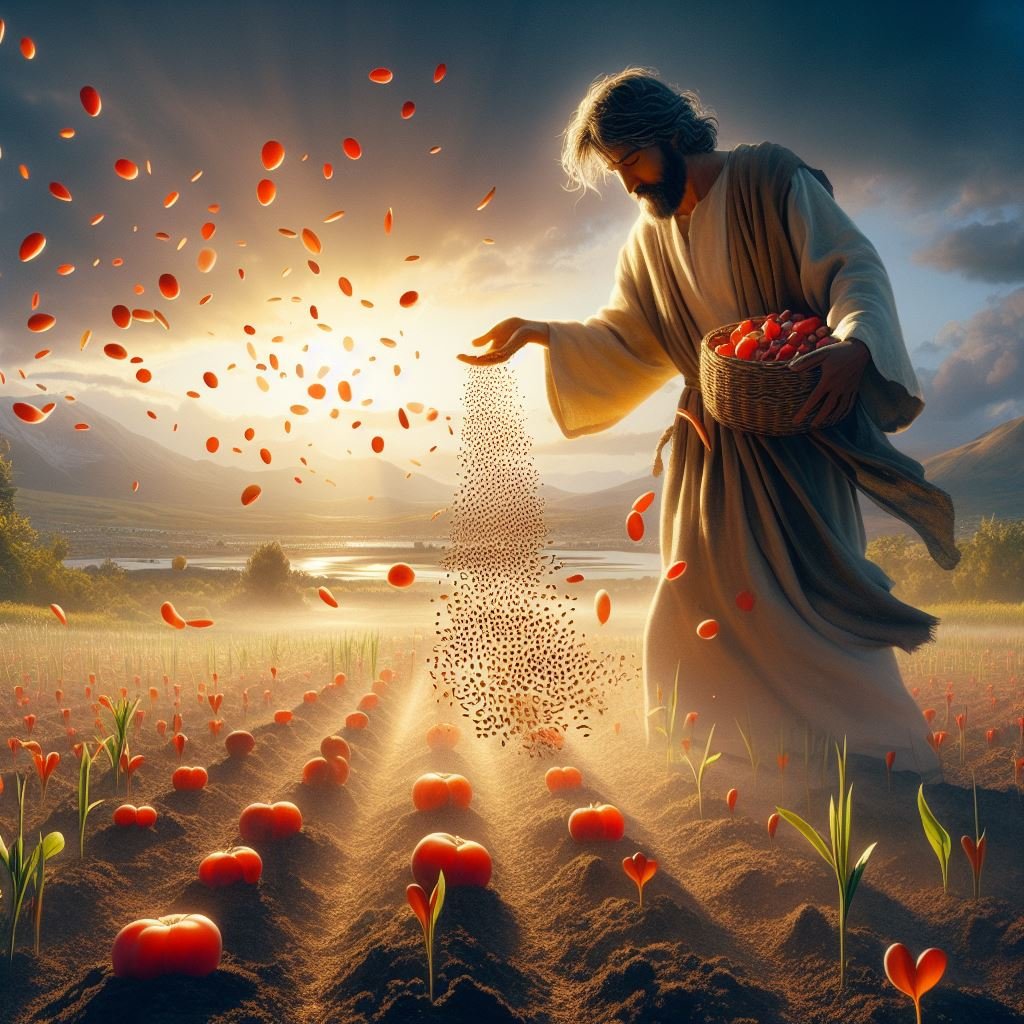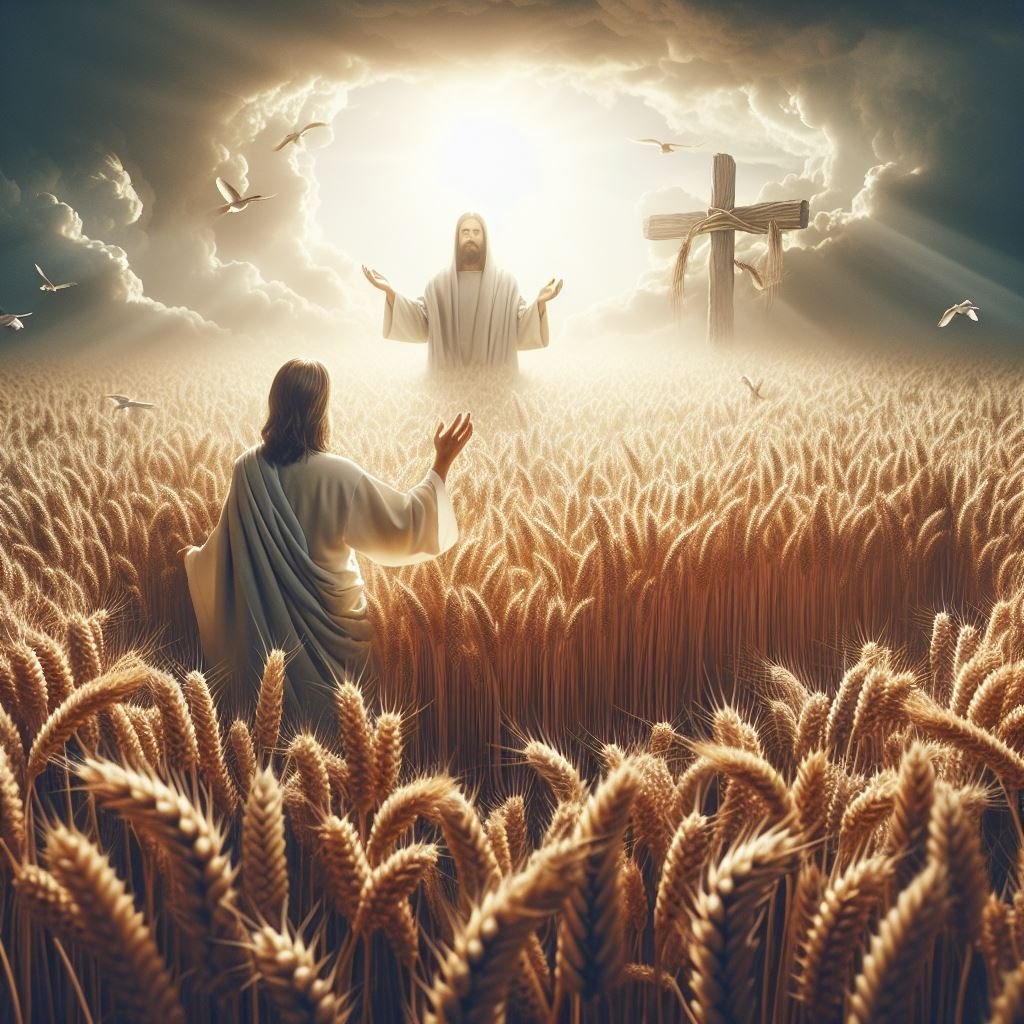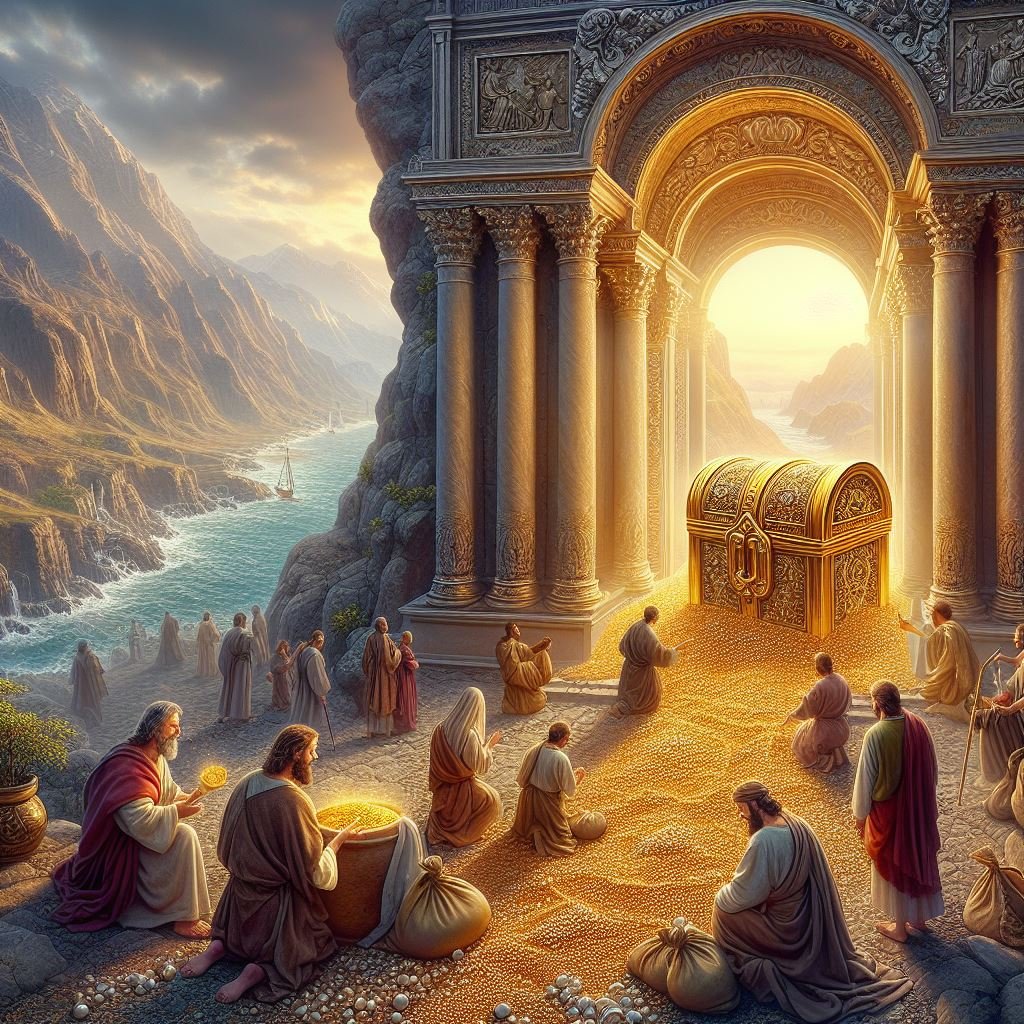Kingdom Parables: Jesus’ Vision for a Transformed World
Introduction:

In the heart of Jesus’ teachings lies a series of parables that unlock profound insights into his vision for a transformed world – the Kingdom of God. These Kingdom parables, encapsulated in the Gospels, serve as windows into a reality where justice, compassion, and divine love reign supreme. In this exploration, we delve into the rich tapestry of these parables to unravel Jesus’ vision for a world metamorphosed by divine principles.
-
The Sower and the Seeds (Matthew 13:1-23):

One of the foundational Kingdom parables, the Parable of the Sower, illustrates the transformative power of the divine message. Jesus paints a vivid picture of a sower scattering seeds on different types of soil, representing hearts receptive or resistant to the Gospel. This parable calls for introspection, urging followers to cultivate hearts capable of receiving and nurturing the transformative power of God’s word.
-
The Mustard Seed and the Leaven (Matthew 13:31-33):

In the seemingly ordinary, Jesus finds the extraordinary. The Parables of the Mustard Seed and the Leaven depict the Kingdom’s growth from humble beginnings. The mustard seed, though small, grows into a large tree, symbolizing the expansive influence of the Kingdom, while the leaven represents the pervasive and transformative nature of divine truth. These parables inspire hope, reminding believers that even the smallest acts of righteousness contribute to the Kingdom’s flourishing.
-
The Wheat and the Tares (Matthew 13:24-30):

The Parable of the Wheat and the Tares explores the coexistence of good and evil within the Kingdom. Jesus uses the metaphor of a field where wheat and weeds grow together, symbolizing the reality of both righteous and unrighteous individuals within the Kingdom. This parable challenges followers to embrace a patient and discerning approach, trusting in God’s ultimate judgment.
-
The Treasure and the Pearl (Matthew 13:44-46):

Jesus employs the Parables of the Treasure Hidden in the Field and the Pearl of Great Price to underscore the unparalleled value of the Kingdom. These parables invite believers to recognize the incomparable worth of God’s reign and to willingly surrender worldly attachments in pursuit of divine treasure. The emphasis here is on the transformative power of prioritizing the Kingdom above all else.
-
The Prodigal Son (Luke 15:11-32):

While not traditionally classified as a Kingdom parable, the Parable of the Prodigal Son embodies the essence of divine love and redemption. Through the story of a wayward son’s return, Jesus communicates the boundless mercy of God and the transformative impact of forgiveness. This narrative encapsulates the Kingdom’s core principle – the power of divine love to restore and transform even the most broken.
Conclusion:
The Kingdom parables stand as a mosaic of divine revelation, offering glimpses into Jesus’ vision for a transformed world governed by righteousness, love, and redemption. These stories transcend time and culture, challenging believers to align their lives with the values of the Kingdom. As we reflect on these parables, may we be inspired to actively participate in the realization of Jesus’ vision – a world transformed by the transformative power of the Kingdom of God.




